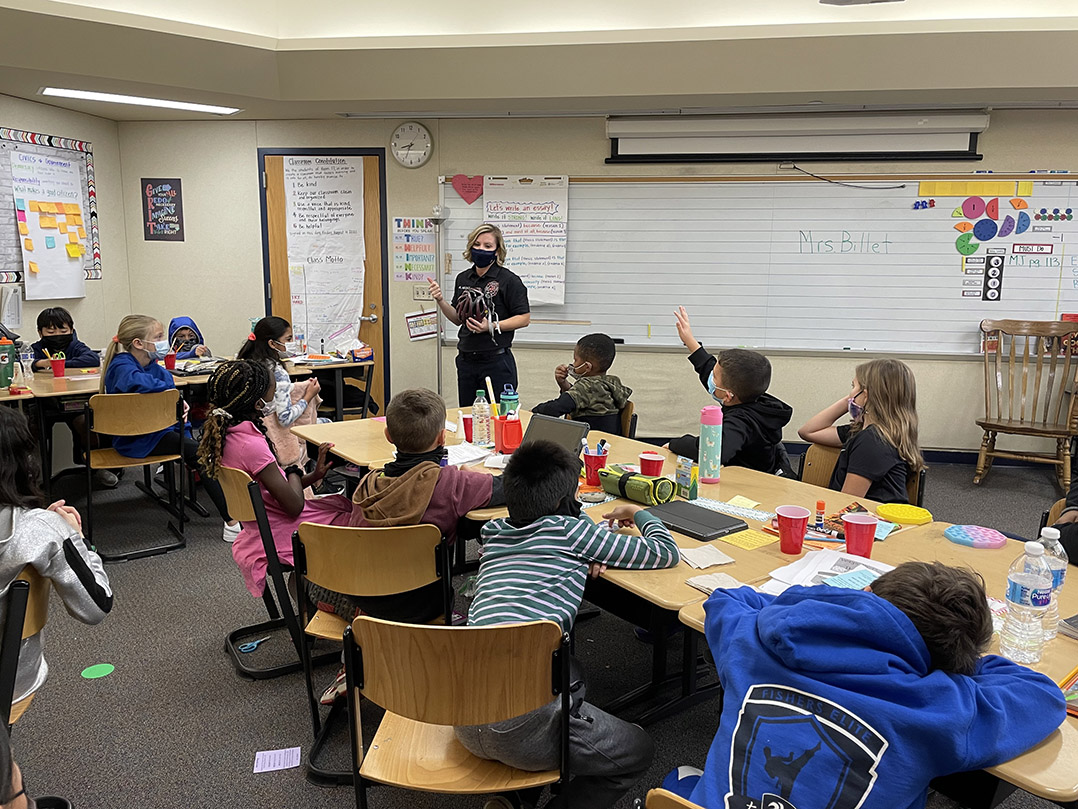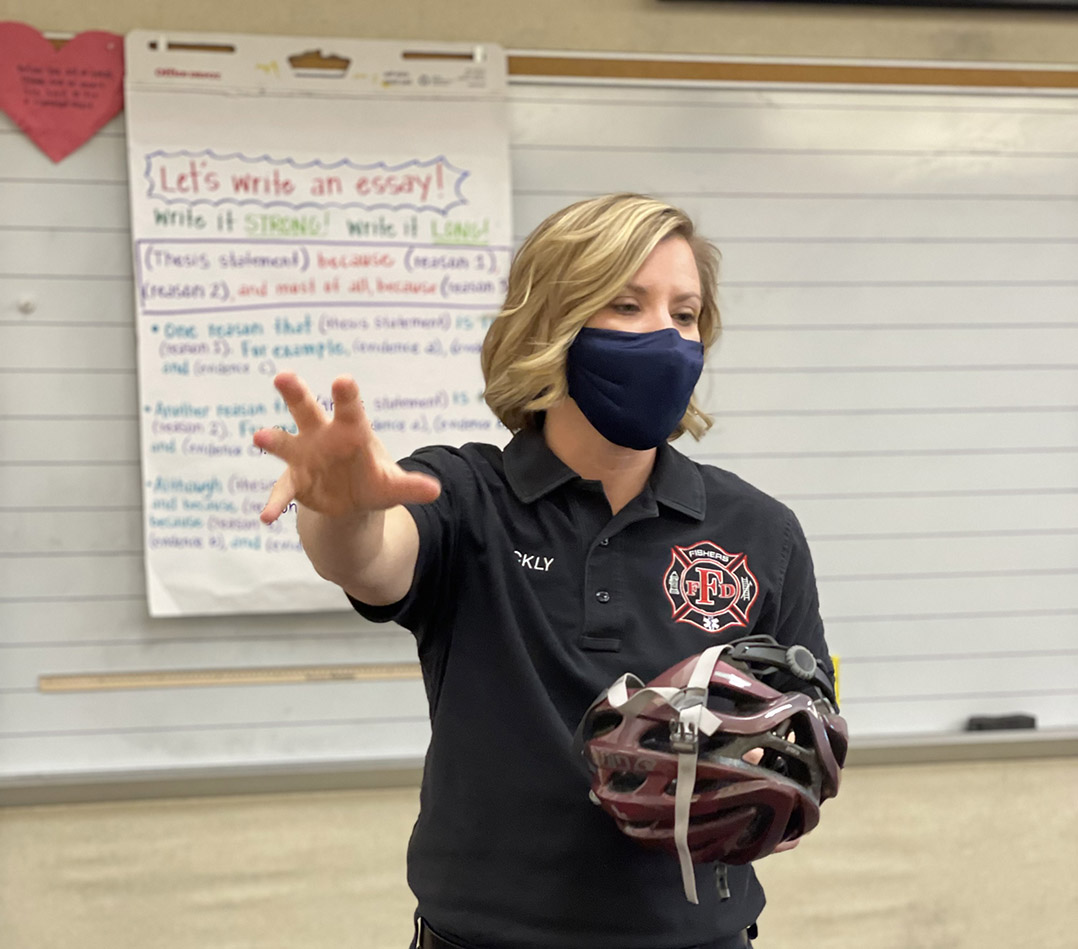Ashley Heckly wanted a change of scenery in her career, and a position for a community risk education specialist at the Fishers Fire Dept. caught her eye. So, the Hamilton Southeastern High School science teacher – through the district’s exploratory career program — began her exploratory year as the department’s community risk education specialist earlier this year.
HSE offers teachers an opportunity for a leave of absence once every 10 years to try a job outside of teaching, according to Heckly.
“HSE provides an opportunity for a limited number of teachers to potentially be granted an unpaid leave, up to two semesters in length to explore a career outside of education,” Assistant Supt. Kim Lippe stated in an email to Current. “There are requirements for teachers to qualify for this leave. This is an opportunity for us as a district to allow teachers to explore other areas of interest while allowing them to still return to teaching, which is our hope. Ultimately, we want to see people happy in their professional lives.”
Each of Heckly’s lessons is roughly 30 minutes.
“(Fishers Fire Dept.) has a strong K-4 curriculum,” Heckly said. “I’ve been going into HSE schools and also private schools in the area. I go class go class and teach different safety lessons.”
Heckly began her education career 14 years ago as a high school science teacher in San Francisco. A Trine University graduate in northern Indiana, her family lives in Michigan, so Heckly moved from San Francisco to Fishers in 2013 to be closer to her family. While at HSE High School, she taught freshman biology and 12th-grade biomedical innovations.
When she saw the job posting for a community risk education specialist through FFD, she was immediately interested.
“This position is attractive because I still get to teach, it’s just in a different form,” Heckly said. “Instead of 160 students all year, I see hundreds in a week. I have contact with a lot more students, and the material is a lot more important. We are teaching them how to be safe community members.”
Heckly said she enjoys working with different age ranges. One day she works with kindergarten students, and at the end of the same day, she might work with adults.
Heckly said the FFD’s goal is to increase its curriculum for fifth through 12th grade.
“So really, we are looking at what’s being taught and finding ways to slip safety messages into what’s already being taught instead of being a standalone curriculum,” Heckly said.
For example, Heckly recently coordinated with an HSE High School German class. The students were working on a unit involving words for food and kitchen items, so Heckly incorporated information about kitchen safety, such as how to prevent kitchen fires. As a result, students created German-language safety videos.
Heckly said the exploratory year program through HSE allows teachers to build on skills and become better teachers.
“You get to go out into the real world and bring those skills back,” she said. “Education is sort of this different part of our world. Tt runs differently than any other business, so I think you get to gain a lot of skills.”
Heckly encourages teachers to take advantage of the exploratory year because it contributes to being a lifelong learner.
“I think being a lifelong learner is what most teachers want to be,” she said. “It’s a new challenge, which is also something I was looking for. I wanted somebody to challenge me and teach me something new. I think you should take advantage of that. I think that’s how we grow as people.”

Standing out
Fishers Fire Dept. Public Information Officer Capt. John Mehling said more than 50 people applied for the community risk education specialist position, but Ashley Heckly’s personality stood out. Part of the interview process involved giving a presentation to the fire department.
“There were some technology hiccups on the fire department side for the presentation and she just rolled with it,” Mehling said.
Mehling said similar technology issues occurred in other interviews, but the applicants were unsure of how to proceed.
“That’s what you’re faced with going into the classroom,” Mehling said. “Every school is a little different, every classroom is a little different.”
Mehling said the technology issues were not planned as part of the interview process.





